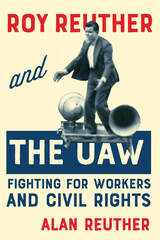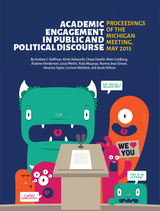
To answer these questions and many more, the University of Michigan hosted a Michigan Meeting that involved over 40 speakers, including 4 University Presidents, and 225 registrants. This report summarizes that three-day meeting with a focus on four key themes. First, what is engagement and should we do it? Second, what are the ground rules for public and political engagement? Third, what are some models that have worked and what can we learn from them? Fourth and finally, what are the obstacles to engagement and how can they be overcome?
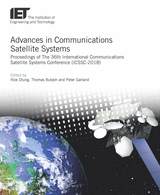
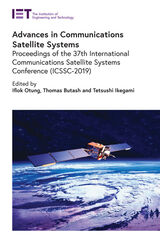
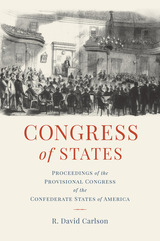
Past publications of the proceedings of the Confederate Congress have focused on the public sessions of the Regular Confederate States Congress that met in Richmond, Virginia from February 1862 to March 1865. Omitted were the formative early sessions of the Montgomery, Alabama and Richmond, Virginia Provisional Congresses of 1861 and 1862. In Congress of States, David Carlson reveals these critical early meetings.
To illuminate this pivot point in American and Southern history, Carlson has drawn on detailed and often verbatim minutes reported in Richmond, Montgomery, Charleston, New Orleans, Savannah, and Augusta newspapers, assembling here a unique set of transcriptions that reveal the birth of the Confederate government.
Congress of States provides an introduction to the Provisional Confederate Congress and the purpose of this work relative to the Southern Historical Society’s landmark 1923 publication “Proceedings of the Confederate Congress,” which detailed the 1962–1865 Regular Confederate Congress. He also includes a chronology outlining the major events of the secession crisis, annotated minutes for the Provisional Confederate Congress’s five sessions, appendices featuring the leadership and committees of the Provisional Congress, and fascinating examples of the proposed Confederate emblem and flags debated by the delegates.
A key set of primary sources that scholars, historians, librarians, and political scientists will value for years to come, Congress of States will also be essential reading for the general reader interested in American and Southern history, the Antebellum South, and the Civil War.

Hosted by the Penny W. Stamps School of Art & Design at the
University of Michigan, Decipher:
- Connected emerging and experienced design researchers in academia and beyond
- Gathered and shared best practices, resources, tools, and exemplary research matter
- Helped participants hone research plans and writing skills
- Created opportunities for dialogues to foster mentorship and collaborative connections

Hosted by the Penny W. Stamps School of Art & Design at the University of Michigan, Decipher:
- Connected emerging and experienced design researchers in academia and beyond
- Gathered and shared best practices, resources, tools, and exemplary research matter
- Helped participants hone research plans and writing skills
- Created opportunities for dialogues to foster mentorship and collaborative connections
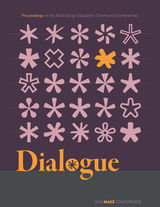
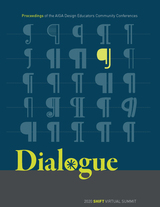
Dialogue is the ongoing series of fully open access proceedings of the conferences and national symposia of the AIGA Design Educators Committee.
Although each conference varies in theme, issues of Dialogue contain papers from DEC conferences which focus on topics that affect design education, research, and professional practice.
Michigan Publishing, the hub of scholarly publishing at the University of Michigan, publishes Dialogue on behalf of the AIGA DEC.

Although each conference varies in theme, issues of Dialogue contain papers from DEC conferences which focus on topics that affect design education, research, and professional practice. Michigan Publishing, the hub of scholarly publishing at the University of Michigan, publishes Dialogue on behalf of the AIGA DEC.

James Loeb (1867–1933), one of the great patrons and philanthropists of his time, left many enduring legacies both to America, where he was born and educated, and to his ancestral Germany, where he spent the second half of his life. Organized in celebration of the sesquicentenary of his birth, the James Loeb Biennial Conferences were convened to commemorate his achievements in four areas: the Loeb Classical Library (2017), collection and connoisseurship (2019), and after pandemic postponement, psychology and medicine (2023), and music (2025).
The subject of the second conference was Loeb’s deep and multifaceted engagement with the material culture of the ancient world as a scholar, connoisseur, collector, and curator. The volume’s contributors range broadly over the manifold connections and contexts, both personal and institutional, of Loeb’s archaeological interests, and consider these in light of the long history of collection and connoisseurship from antiquity to the present. Their essays also reflect on the contemporary significance of Loeb’s work, as the collections he shaped continue to be curated and studied in today’s rapidly evolving environment for the arts.

James Loeb (1867–1933), one of the great patrons and philanthropists of his time, left many enduring legacies both to America, where he was born and educated, and to his ancestral Germany, where he spent the second half of his life. Organized in celebration of the sesquicentenary of his birth, the James Loeb Biennial Conferences were convened to commemorate his achievements in four areas: the Loeb Classical Library (2017), collection and connoisseurship (2019), psychology and medicine (2021), and music (2023).
The subject of the inaugural conference was the legacy for which Loeb is best known and the only one to which he attached his name—the Loeb Classical Library, and the three series it has inspired: the I Tatti Renaissance Library, the Dumbarton Oaks Medieval Library, and the Murty Classical Library of India. Including discussions by the four General Editors of each Library’s unique history, mission, operations, and challenges, the papers collected in The Loeb Classical Library and Its Progeny also take stock of these series in light of more general themes and questions bearing on translations of “classical” texts and their audiences in a variety of societies past, present, and future.

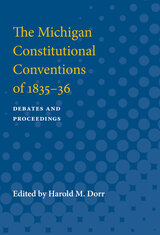
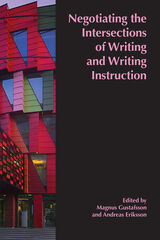
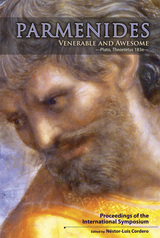
In October of 2007, the Universidad Nacional de San Martín (Argentina) hosted an International Symposium on the philosophy of Parmenides to celebrate the creation of the University’s new Center for the Study of Ancient Philosophy. The event—co-organized by the HYELE Institute for Comparative Studies (Switzerland) and Parmenides Publishing—brought together scholars from around the world to present their latest work and participate in discussion. These Proceedings present the collected papers that were given—all fully translated into English—and edited by Néstor-Luis Cordero.
During the two years leading up to the International Symposium, no fewer than seven books on Parmenides were published. This revival and resurgence of interest in Parmenides and the critical reviews of traditional interpretations of his poem made this the perfect time for a global conference dedicated to the renowned figure known as the true father of philosophy.
The Symposium on Parmenides united the world's foremost Parmenidean scholars, with many participants having written one, if not several books on Parmenides. The proceedings volume therefore represents the most cutting-edge and in-depth scholarship on Parmenides available today, and will be a great and timely enrichment to the field of Presocratic Philosophy.




The Harvard Celtic Colloquium was established in 1980 by two graduate students in the Harvard University Department of Celtic Languages and Literatures as a forum in which graduate students could share their work and gain experience in professional academia. Since then, it has been organized annually by a team of students in the department, grown in size, and gained an international reputation which annually draws a diverse mix of scholars from around the world to present papers on all facets of Celtic Studies.
The Harvard Celtic Colloquium is the only conference in the field of Celtic Studies to be wholly organized and run by graduate students. Since its inception, established and internationally-renowned scholars in Celtic as well as graduate students, junior academics, and unaffiliated scholars have been drawn to this dynamic setting, presenting papers on ancient, medieval, and modern topics in the many disciplines relating to Celtic Studies; including literature, linguistics, art, archeology, government, economics, music, and history.
Papers given at the Colloquium may be submitted for review to the organizers of the conference, who become the editors for those papers selected for publication in the Proceedings of the Harvard Celtic Colloquium. Only papers presented at the annual conference are considered for publication.
Harvard University Press is proud to announce that we will distribute the Proceedings of the Harvard Celtic Colloquium. Two new issues are available this Fall: Volume 18/19 (1998 and 1999) and Volume 20/21 (2000 and 2001). Back issues are also available.

Proceedings of the Harvard Celtic Colloquium, 20 includes “Retoiric and Composition in Geneamuin Chormaic,” by Hugh Fogarty; “Classical Ethnography and Celts: Can We Trust the Sources?” by Philip Freeman; “Prayers, Prizefights and Prostitution: The Medieval Irish Cemetery and Its Many Uses,” by Susan Leigh Fry; “Magical Realism and the Mabinogi: An Exercise in Methodology,” by Michael Linkletter; “Rebuke and Revision in the Early Irish Annals: The Death-Notices of Muirchertach mac Ercae [†534],” by Laurence Maney; “‘To a man for the King’: The Allegiance of Welsh Catholics during the First Civil War, 1642–46,” by Robert Matthews; “King and Druid,” by Arun Micheelsen; “‘Words, words, words’: Language about Language in France and Ireland,” by Grace Neville; “Ystoria Tri Brenin o Gwlen,” by Prydwyn Piper; and “Highland Motives in the Jacobite Rising of 1745–46: ‘Forcing Out,’ Traditional Documentation and Gaelic Poetry,” by James A. Stewart, Jr.
Proceedings of the Harvard Celtic Colloquium, 21 includes “Gendering the Vita Prima: An Examination of St. Brigid’s Role as ‘Mary of the Gael,’” by Diane Peters Auslander; “Apollonius of Rhodes’ Argonautica: A Mythology of Greek Expansion in Celtic Lands,” by Timothy P. Bridgman; “The Wealth of the Medieval Welsh Gentry: The Case of Gwilym ap Gruffydd of Penrhyn,” by A. D. Carr; “Celtic Languages in the 1910 U.S. Census,” by Jonathan Dembling; “Digging Deeper: Adventures in Medieval Irish Burial and the Case for Interdisciplinary Scholarship,” by Susan Leigh Fry; “Laoiseach Mac an Bhaird and the Politics of Close Reading,” by Sarah E. McKibben; “Prescient Birds and Prospective Kings: Further Comments on Irish Elements in the Eddic Poem Rígsþula,” by Amy Eichhorn Mulligan; “The Descent of the Gods: Creation, Cosmogony, and Divine Order in Lebor Gabála,” by Sharon Paice Macleod; “Babel Is Come Again: Linguistic Colonisation and the Bardic Response in Early Modern Ireland,” by Patricia Palmer; “‘In Defiance of the Gospel and by Authority of the Devil’: Criticism of Welsh Marriage Law by the English Ecclesiastical Establishment and Its Socio-Political Context,” by Laura Radiker; and “The Way We Were: Twentieth Century Brittany through the Eyes of Breton Language Memorialists,” by Lenora Timm.



Proceedings of the Harvard Celtic Colloquium, 24 includes “The Celticity of Galicia and the Arrival of the Insular Celts,” by Manuel Alberro; “Reading Aislinge Óenguso as a Christian-Platonist Parable,” by Brenda Gray; “Celtic Legends in Irish Opera, 1900–1930,” by Axel Klein; “‘I wonder what the king is doing tonight’—Looking for Arthur in All the Wrong Places,” by Laurance J. Maney†; “What Future for the Irish Gaeltacht Communities in the Twenty-First Century?” by Nollaig Ó Gadhra†; “Acallam Na Senórach as Prosimetrum,” by Geraldine Parsons; “Traditional and Courtly Themes in a Medieval Welsh Elegy to a ‘Góann Wargann Wery’ (‘A Fair Virgin, Meek and Mild’),” by Laura Radiker; and “Welsh Prophetic Poetry in the Age of the Princes,” by Elizabeth Schoales.
Proceedings of the Harvard Celtic Colloquium, 25 includes “Keltoi, Galatai, Galli: Were They All One People?” by Timothy P. Bridgman; “On Verbal Nouns in Celtic Languages,” by Chao Li; “Cross-Linguistic Discourse Markers in Manx Gaelic and English,” by Marie Clague; “The Acallam na Senórach: A Medieval Instruction Manual,” by Annie Donahue; “Gendered Postcolonial Discourse in the Mabinogi,” by Morgan Kay; “Language Death and Resurrection in the Isle of Man: The Continuity of Manx Gaelic Exemplified by the Use of Inflected Verb Tenses,” by Jennifer Kewley Draskau; “High Kings and Pipe Dreams: Revisiting John Vincent Kelleher’s Theory of Revision to the Early Irish Annals,” by Laurance J. Maney†; and “The Rise of Christian Nomenclature in Medieval Scotland,” by David Morris.

Proceedings of the Harvard Celtic Colloquium, 26 includes “Heroic Recycling in Celtic Tradition,” by Joseph F. Nagy; “On the Celtic-American Fringe: Irish–Mexican Encounters in the Texas–Mexico Borderlands,” by Marian J. Barber; “The Encomium Urbis in Medieval Welsh Poetry,” by Helen Fulton; “Prophecy in Welsh Manuscripts,” by Morgan Kay; “‘Ceol agus Gaol’ (‘Music and Relationship’): Memory, Identity, and Community in Boston’s Irish Music Scene,” by Natalie Kirschstein; “Colonization Circulars: Timber Cycles in the Time of Famine,” by Kathryn Miles; “Up Close and Personal: The French in Bantry Bay (1796) in the Bantry Estate Papers,” by Grace Neville; “In Praise of Two Margarets: Two Laudatory Poems by Piaras Feiritéar,” by Deirdre Nic Mhathúna; “Observations on Cross-Cultural Names and Name Patterns in Medieval Wales and the March,” by Laura Radiker; and “Mouth to Mouth: Gaelic Stories as Told within One Family,” by Carol Zall.
Proceedings of the Harvard Celtic Colloquium, 27 includes “Poets and Carpenters: Creating the Architecture of Happiness in Late-Medieval Wales,” by Richard Suggett; “Revisiting Preaspiration: Evidence from the Survey of the Gaelic Dialects of Scotland,” by Anna Bosch; “The Anoetheu Dialogue in Culhwch ac Olwen,” by Fiona Dehghani; “Homophony and Breton Loss of Lexis,” by Francis Favereau; “The Origins of ‘the Jailtacht,’” by Diarmait Mac Giolla Chríost; “A Confluence of Wisdom: The Symbolism of Wells, Whirlpools, Waterfalls and Rivers in Early Celtic Sources,” by Sharon Paice MacLeod; “The Real Charlotte: The Exclusive Myth of Somerville and Ross,” by Donald McNamara; “Language Shift in Early Twentieth-Century Ireland,” by Máire Ní Chiosáin; and “Conceptions of an Urban Ideal and the Early Modern Welsh Town,” by Sally-Anne Shearn.



Proceedings of the Harvard Celtic Colloquium has in its purview all aspects of culture, language, and history of the Celtic peoples, from ancient to modern times.
This volume of PHCC contains articles on medieval Irish, Welsh, and Breton literature; post-1800 to modern poetry in Irish, Welsh, and Scottish Gaelic; the Irish Revival Movement; and modern Irish and Welsh linguistics. The volume also features the 2010 J. V. Kelleher Lecture by Dr. M. Katharine Simms on the social expression of the literary model of the barefoot king in late medieval Ireland.



The Harvard Celtic Colloquium provides a small but international audience for presentations by scholars from all ranks of scholarship and all areas of Celtic Studies. Among the topics covered are the archaeology, history, culture, linguistics, literatures, politics, religion, and social structures of the countries and regions in which Celtic languages are, or were, spoken, as well as their extended influence, from prehistory to the present. The broad range of the conference is reflected in the content of its published proceedings, which will interest both students newly attracted to Celtic Studies and senior scholars in the field.
PHCC, 33 features the annual John V. Kelleher Lecture for 2013, given by Thomas Owen Clancy, Professor of Celtic at the University of Glasgow, Scotland. Clancy discusses connections between Scottish saints’ names and cults and the onomastics of settlements and topographical features gathered and investigated in preparation for a digital atlas project, “Commemoration of Saints in Scottish Place Names.” In addition, PHCC, 33 includes contributions in the areas of Irish, Welsh, and Scottish history, Irish and Welsh literature and poetry, and Irish ecclesiastical learning.

The Harvard Celtic Colloquium provides a small but international audience for presentations by scholars from all ranks of scholarship and all areas of Celtic Studies. Among the topics covered are the archaeology, history, culture, linguistics, literatures, politics, religion, and social structures of the countries and regions in which Celtic languages are, or were, spoken, and their extended influence, from prehistory to the present. The broad range of the conference is reflected in the content of its published proceedings, which will interest students newly attracted to Celtic Studies as well as senior scholars in the field.
PHCC 34 includes the John V. Kelleher Lecture for 2014 given by Ann Parry Owen, “‘An audacious man of beautiful words’: Ieuan Gethin (c.1390–c.1470).” Several papers in this volume deal with the reflection of political forces and contemporary leaders in the early modern period in the literature of Ireland and Wales. Others consider the influence of Christian authors on Ireland as reflected in various surviving literary documents and tales. Of particular interest for the history of Celtic Studies are articles on early scholarship in the field, and Irish and Welsh vernacular authors who incorporated medieval literary motifs into their own work.

The Harvard Celtic Colloquium provides a small but international audience for presentations by scholars from all ranks of scholarship and all areas of Celtic Studies, the archaeology, history, culture, linguistics, literatures, politics, religion, and social structures of the countries and regions in which Celtic languages are or were spoken, and their extended influence, from prehistory to the present. The broad range of the conference is reflected in the content of its published proceedings, which will interest students newly attracted to Celtic Studies as well as senior scholars in the field.
PHCC, 35 includes the 2015 John V. Kelleher Lecture, “Whodunnit? Indirect Evidence in Early Irish Law,” given by Dr. Fergus Kelly of the School of Celtic Studies, Dublin Institute for Advanced Studies, Dublin, Ireland. Kelly is highly regarded for his command of the large and complex body of Irish legal literature and its social context. Other papers in this volume concern the social context and manuscript tradition of early Irish law; medieval Welsh and Irish literary, poetical, and hagiographical material; modern uses of medieval themes; modern Celtic languages, Irish, Welsh and Breton; and the considerations of using digital resources for Celtic Studies.


This volume of the Proceedings of the Harvard Celtic Colloquium offers a wide range of articles on topics across the field of Celtic Studies.
It includes the 2017 J. V. Kelleher lecture delivered by Paul Russell, Professor of Celtic, University of Cambridge, entitled “‘Mistakes of All Kinds’: The Glossography of Medieval Irish Literary Texts.” In this address Russell offers cogent analysis of this rarely addressed facet of medieval Irish codicology. The articles from other presentations at the Colloquium extend the focus on Celtic glossing into other areas of Celtic linguistics and literary studies. In addition, the volume includes articles on the medieval folkloric, religious, legal, and material culture of Celtic communities, some aspects of which persist into modernity. This volume exemplifies the broad range of topics and time periods characteristic of the Harvard Celtic Colloquium.

Proceedings of the Harvard Celtic Colloquium, 38 collects papers ranging widely on topics of the literary and material culture of the Celtic regions of Ireland, Wales, and Breton in the medieval and modern periods. Several articles concern the self-awareness of the literary elite in Ireland and Wales, whose members respected the traditional forms of their literature but used them to further contemporary purposes. For example, they introduce new references to foreign places and cultures, or use older topographical lore to describe and justify contemporary land use and settlement. Other articles review material culture as it is reflected in literary works of their respective periods and discuss how this in turn illuminates the attitudes of the authors and their intended readers. A number of contributions concern the grammatical structure and linguistic formation of the languages of Ireland, Wales, and Brittany, both early and modern.
The special lecture for the Harvard Celtic Colloquium this year was given by Dr. Aled Jones, Senior Lecturer in Welsh and Medieval Studies at Bangor University, Wales, comparing modern astrophysics to the plasticity of time in medieval Celtic literature, a thought-provoking consideration of congruences in modern and medieval conceptions of time and space. This volume also contains the 2018 Kelleher lecture given by Dr. William Gilles of the University of Edinburgh on a problematic early Scots-Gaelic text, the Harlaw Brosnachadh.

This volume of the Proceedings of the Harvard Celtic Colloquium offers a wide range of articles on topics across the field of Celtic Studies. It includes the Colloquium keynote given by Prof. Barbara Hillers which studied the literary use of folklore, Irish and international, in the Irish tale “Aislinge Meic Con Glinne” (“The Vision of Mac Con Glinne”).
More recent literary topics expand the scope of this volume from the medieval into the early modern period, and into the early twentieth century. Of special interest to scholars of more recent times will be articles on the Irish language in nineteenth-century American print media, and on the unpublished sequel by Muiris Ó Súilleabháin to his memoir Fiche Blian ag Fás (1933), which was published in English as Twenty Years a-Growing.

This volume of Proceedings of the Harvard Celtic Colloquium is graced with two J. V. Kelleher lectures: the 2019 lecture by Máire Ní Mhaonaigh on Irish chronicles and the 2021 presentation by Ruairí Ó hUiginn assessing the Irish genealogical corpus in its sociological context. It also includes Georgia Henley’s 2021 keynote on the differing literary receptions in Norman Ireland and Wales of Geoffrey of Monmouth’s history of Britain and related prophecies.
Other articles in Volume 40 survey a wide array of topics in Celtic Studies, centering on Irish and Welsh material with the smaller language areas appearing as well, and ranging from medieval to modern times. While most are literary or linguistic in their focus, some historical context is also provided.


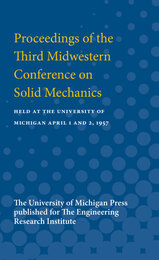
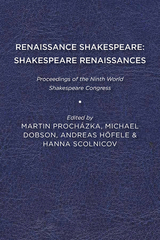
Published by University of Delaware Press. Distributed worldwide by Rutgers University Press.
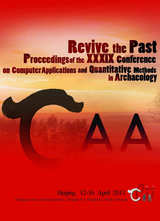
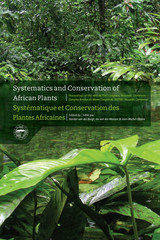
An edited volume based on the proceedings of the eighteenth Association for the Taxonomic Study of the Flora of Tropical Africa Congress held in Yaoundé, Cameroon, Systematics and Conservation of African Plants includes one hundred research papers in separate sections on taxonomy, phytogeography, ethnobotany, and the conservation and sustainable use of African plants. Topics covered include recent advances in reproductive biology, vegetation, and Podostometaceae in Africa. A separate section on African floras reflects the present state of knowledge and progress towards our understanding and documentation of the plants of Africa.
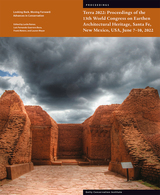
Earthen architecture is one of the oldest forms of construction and is evidenced around the globe. This volume gathers the research and presentations from Terra 2022: 13th World Congress on Earthen Architectural Heritage, which brought together in Santa Fe, New Mexico, 350 conservation professionals and practitioners from fifty-two countries.
Seventy richly illustrated papers, fifty-seven in English and thirteen in Spanish, address a range of conservation issues. Abstracts are provided in both English and Spanish for each paper. Themes covered include advances in research, strategies for archaeological sites, community-based care and decision-making, cultural landscapes, decorated surfaces, education, historic and modern buildings, conservation history, risks and vulnerabilities, and traditional materials and practices. Sections that draw on symposia held at the congress spotlight two recent architectural heritage initiatives: the rehabilitation of an urban settlement by the AlUla Old Town and Oasis Conservation Project in Saudi Arabia, and the conservation and management of eight monumental enclosure complexes at the Hopewell Ceremonial Earthworks in Ohio.
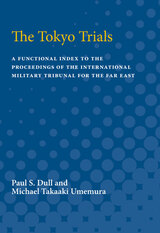

This collaborative volume explores the challenge of totalitarianism, and more especially the issue of freedom and totalitarianism, in the world today. It is the outgrowth of a conference on totalitarianism held by the American Academy of Arts and Sciences last year. The participants, who represent many fields and interests, successively consider ideological and psychological aspects of the problem, and then totalitarianism in its relation to intellectual life and to social and economic organization. In conclusion they look at totalitarianism and the future.
The contributors to the volume are: George F. Kennan, Jerzy G. Gliksman, N. E. Timasheff, Carl J. Friedrich, Alex Inkeles, Franklin H. Littell, Waldemar Gurian, Raymond Bauer, Erik H. Erikson, Else Frenkel-Brunswik, Marie Jahoda, Stuart W. Cook, H. J. Muller, Georgede Santillana, Bertram D. Wolfe, Albert Lauterbach, J. P. Nettl, Karl W. Deutsch, Paul Kecskemeti, Harold D. Lasswell, Andrew Gyorgy.

The bar code is now at the core of commerce, transportation, warehousing, manufacturing, and retailing, and its influence has spread to virtually every industry in the industrialized world. When this voluntary product code was first introduced in 1974, it led to the worldwide revolution in supply chain efficiency.
To celebrate the twenty-fifth anniversary of this now universally embraced technology, the Smithsonian Institution sponsored a symposium. Gathered together in this volume are the thoughts of eight speakers with hands-on experience concerning the development, diffusion, adoption, and applications of a truly groundbreaking technology. The volume concludes with papers from a panel discussion among those involved in creating the Universal Product Code, the foundation of the bar code.
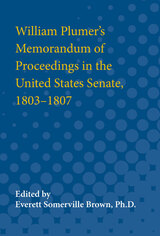
READERS
Browse our collection.
PUBLISHERS
See BiblioVault's publisher services.
STUDENT SERVICES
Files for college accessibility offices.
UChicago Accessibility Resources
home | accessibility | search | about | contact us
BiblioVault ® 2001 - 2025
The University of Chicago Press



